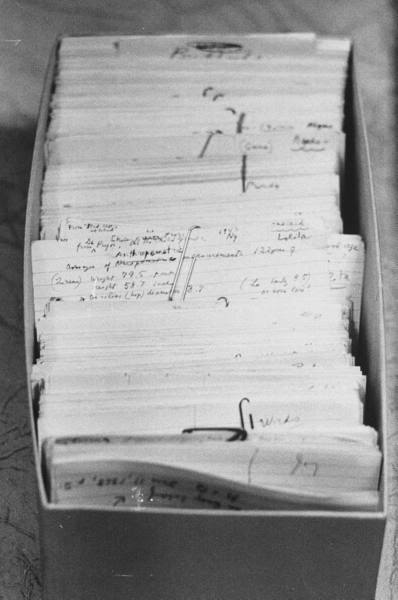What I've learned so far about how to write a novel.

I'm not finished writing this novel yet. I'm almost at... the middle? Hard to say. I'm on strict, personally enforced orders to not talk about the story until it's finished. That's because I don't know what this story really is, yet. Such is the mystery of writing it. I'll know more in six months or so.
Until then, I thought I'd share what I've learned so far about how to write a novel.
1. Can't work with an outline; can't work without an outline. I spent four months studying story structure and plotting out everything about my story on a detailed timeline. I outlined my whole book before I wrote it. By the end of all of that hard work and plotting, I was bored by my own story. There was no reason to write it anymore, because when I outlined it I'd already decided on all the twists and turns, and I wasn't curious anymore.
I felt deflated for a little bit. Then I went back to the drawing board. I spent more than a year writing freely this time, starting at the beginning and building the story as I went. Got to about 50 pages this way (twice) — and burnt out both times. I see now that I was approaching the novel as a short story: I was attempting to run a marathon by sprinting the whole way. Exhausting.
Finally, I discovered the elegance of a loose outline.
I chose a few milestones to hit throughout the story — scenes that had some energy that I liked turning over and over in my head. I invited these scenes to come at the beginning, middle and end. I didn't force them this time — I just wrote a lot of boring notes and questions in my notebooks until something interesting happened on the page. I saved the interesting bits, highlighted them, and wrote them in general terms on Post-It notes and called them "milestones." I'm writing to these milestones now, a little at a time. And still, things change! And when they do, I simply adjust the outline as I go. It's an approach that mixes the joy of freewriting with the comfort of an outline. 
2. Use index cards instead of tiny notebooks. If I ever do this again, (i.e. write another novel), I might start by writing down those first salient images and scenes on index cards instead of using highlighters and Post-It notes in all of my little notebooks.
The thing is, I love writing in my little books. But once the images are written down in there, it's harder to work with them. The highlighters and sticky notes are okay, but I confuse myself with my own colour codes. The process of writing a first draft is inherently messy, and honestly, I no longer remember what I meant by pink vs. yellow. I am resisting the urge to rip out the pages and arrange them on the floor to get a picture of where they all fit in the story. And besides, I wrote on both sides of the paper, so that might not even work. I guess I haven't figured this part out yet. I might still have to rip my books apart — this stage of the process is still TBA.
Next time, I'm using index cards, and keeping them in a neat little box like Liz Gilbert does.
3. Some days, track by word count. I aim for 1000 words a day. Some days I only get to 600 words, and some days I hit 2000. It averages out in a satisfying way, and you know what? The pages add up! It feels incredible to have all of those pages behind me. It's a confidence booster. It helps me feel like less of a fraud. So what if I don't reread them? Onward!
4. Some days, track by insights. (Jill Margo taught me this, via Susan Swan.) On those days that a word count doesn't happen, I write down my insights each day in my notebook instead. Lo and behold, I really am writing, even when I'm not writing! Thinking about my characters is important, not to be overlooked. So what if I don't have a word count? Onward!
5. We're all on the hero's journey. We all live in story. This has been a powerful revelation. Probably annoying for my family and friends, who are all now aware of where they are on the hero's journey, because I can't stop pointing it out. Ditto for episodes of Nashville and The Good Wife, etc. Also, myself. But once I saw how we all hear the call to action, feel resistance, experience false victory, suffering, surrender, I can't un-see it! Joseph Campbell was so right.
6. Your story is smarter than you are. My job is to be curious. Images and scenes come up and I have to trust that they're there for a reason, otherwise the act of writing feels hostile.
There's so much faith and trust involved in this process.
It's humbling and beautiful. I have to honour and respect my subconscious every day, like it's a wise elder, even though I might not understand what it's doing.
7. Write the story from the beginning to the end. I'm keeping it in order, writing from scene to scene, lily pad to lily pad, as things happen in the book I am writing. My story wants to be told in a linear fashion. So even if I have a flashback, I wait until I get to the place it appears in the story before I write it. That's been helpful. Any time I've tried writing a scene out of order, it has confused me later.
8. Let yourself write it badly. Giving yourself permission to write crappy stuff really does make it possible to write something interesting. I learn this every single day as if for the first time.
9. Nothing is ever wasted. Who's to say that spending three years on false starts wasn't utterly necessary for what I'm working on, now? Who's to say that writing in the little notebooks — not index cards — hasn't been essential to this story as it develops? Creation is not tidy and efficient. It's exploratory and random. It only feels inefficient when you compare it to washing and drying dishes, or packing bags of produce. There are no rules for this.
10. Everybody is different. Please take all of the above with a big crystal of salt. These are just my thoughts on how I'm writing my first novel. I'm learning as I go. I feel like a little baby beginner. I'm definitely not an expert! Everybody will have a different process. What's more, my own process changes, depending on the day! My best advice: listen to yourself, be curious, and be open — try whatever works, and pay attention to how you feel.

31 comments
Leave a comment